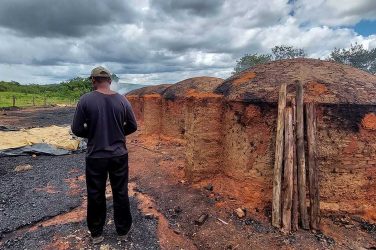 US Secretary of State, Condoleezza Rice, arrived in Brazil on Thursday, March 13, for a two-day visit to South America, which also includes Chile but leaves out Argentina in spite of the fact that Argentinean President Cristina Fernandez de Kirchner in her inaugural December speech promised to improve relations with Washington.
US Secretary of State, Condoleezza Rice, arrived in Brazil on Thursday, March 13, for a two-day visit to South America, which also includes Chile but leaves out Argentina in spite of the fact that Argentinean President Cristina Fernandez de Kirchner in her inaugural December speech promised to improve relations with Washington.
In Brasília Rice has met President Luiz Inácio Lula da Silva and Foreign Minister Celso Amorim. Relations with Brazil, which President George W. Bush visited last year, remain warm and Rice has discussed an initiative announced with Bush last year to develop their ethanol industries.
The agenda also included cooperation on issues, such as trade, finance, regional security, nonproliferation and arms control.
In Salvador, capital of the northeastern state of Bahia, the Secretary of State participated in a cultural event tied to that city's designation as the center of Afro-Brazilian culture.
Rice is supposed to meet this Friday, March 14, in Santiago, with President Michelle Bachelet of Chile and Foreign Minister Alejandro Foxley. Chile is considered a reliable ally of the US in the region.
Last March, President Bush also avoided Argentina, visiting Brazil and Uruguay, which he hailed as strong partners in the region. Argentine supporters of Chávez, meanwhile, staged an anti-Bush rally in a Buenos Aires soccer stadium.
Mrs. Kirchner following partly on her husband's administration has been attempting to play a delicate balancing game between Venezuela's Hugo Chavez and a more fluid relation with the United States although she's more inclined to wait for the US election results next November.
Lately an investigation in Miami into an alleged 800,000 US dollar secret campaign contribution from Venezuela to Kirchner has further distanced both sides particularly since the Kirchner administration believes the probe is "politically motivated" against Argentina and Venezuela.
Relations between the United States and Argentina have been strained throughout Bush's seven years in office. Argentina still blames the American-controlled International Monetary Fund for its financial collapse in late 2001. Argentina was forced to default on billions of dollars in debt to the IMF, the Paris Club and private sovereign bond holders.
Anti-US sentiment became a way for Nestor Kirchner, who took over as president in 2003, to play to leftist constituencies while turning around a country where more than half its people had slipped over the poverty line.
Anti-Bush sentiment flared up in November 2005 at a summit of the three Americas leaders that Bush attended in Mar del Plata, Argentina. In front of Bush, Kirchner criticized the neo-liberal policies of the 1990s that the United States sponsored and did little to stop anti-US protests.
Following on then the First Lady's repeated trips and political meetings in the US, Washington officials were expecting a change of Argentine attitudes when Cristina Fernández de Kirchner was elected last October.
However as during Nestor Kirchner's presidency, Venezuela and Argentina recently signed energy for food agreement and President Chavez has continued to buy some US$ 4 billion in Argentine bonds to help Argentina refinance its debt. Argentina now is committed to provide basic consumer goods and Venezuela 10 million barrels a year of fuel oil and diesel.
Mercopress






